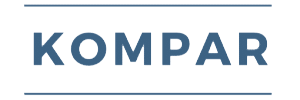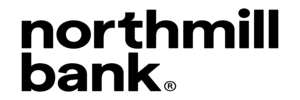Get a Buiseness loan today
Business loans Sweden
Free, 100% digital business loan comparison
Save money with lower interest rates
1 application, 30+ lenders, payout within 1-10 days
Recommended

Amount
SEK 10.000 – 30.000.000
(≈ USD 1.050 – 3.150.000)
Term
1-5 years
Interest rate
Varies
Payment in 1-10 days
Answers from up to 30 lenders
Recieve loan offers within 24 hours
Borrowing costs money.
If you are unable to repay your debt on time, you risk getting a payment default. This can make it harder to rent a home, sign contracts, or obtain new loans. For support, contact the municipal budget and debt counselling service. You can find contact information at konsumentverket.se.

Amount
SEK 20.000 – 3.500.000
(≈ USD 2.100 – 367.000)
Term
up to 48 months
Interest rate
Varies
Verified Company
Apply for a business loan in a few min.
Receive money same day
Borrowing costs money.
If you are unable to repay your debt on time, you risk getting a payment default. This can make it harder to rent a home, sign contracts, or obtain new loans. For support, contact the municipal budget and debt counselling service. You can find contact information at konsumentverket.se.

Amount
SEK 30.000 – 1.000.000
(≈ USD 3.150 – 105.000)
Term
6-24 months
Interest rate
Varies
Verified Company
Apply for a business loan in a few min.
Unsecured business loans
Borrowing costs money.
If you are unable to repay your debt on time, you risk getting a payment default. This can make it harder to rent a home, sign contracts, or obtain new loans. For support, contact the municipal budget and debt counselling service. You can find contact information at konsumentverket.se.

Amount
SEK 20.000 – 7.000.000
(≈ USD 2.100 – 735.000)
Term
1-60 months
Interest rate
Varies
Payment within 24 hours
Apply in 1 min.
Answers from up to 30 lenders
Borrowing costs money.
If you are unable to repay your debt on time, you risk getting a payment default. This can make it harder to rent a home, sign contracts, or obtain new loans. For support, contact the municipal budget and debt counselling service. You can find contact information at konsumentverket.se.

Amount
SEK 50.000 – 5.000.000
(≈ USD 5.250 – 525.000)
Term
6-60 months
Interest rate
Varies
Answer within 24 hours
Apply in 1 min.
Only 1 Credit Check
Borrowing costs money.
If you are unable to repay your debt on time, you risk getting a payment default. This can make it harder to rent a home, sign contracts, or obtain new loans. For support, contact the municipal budget and debt counselling service. You can find contact information at konsumentverket.se.

Amount
SEK 25.000- 1.000.000
(≈ USD 2.600 – 105.000)
Term
24-60 months
Interest rate
Varies
Payment within 24 hours
Apply in 1 min.
Flexibel credit
Borrowing costs money.
If you are unable to repay your debt on time, you risk getting a payment default. This can make it harder to rent a home, sign contracts, or obtain new loans. For support, contact the municipal budget and debt counselling service. You can find contact information at konsumentverket.se.

Amount
SEK 50.000 – 2.000.000
(≈ USD 5.250 – 210.000)
Term
1-36 months
Interest rate
Varies
Verified Company
Apply in 1 min.
Answers from up to 22 lenders
Borrowing costs money.
If you are unable to repay your debt on time, you risk getting a payment default. This can make it harder to rent a home, sign contracts, or obtain new loans. For support, contact the municipal budget and debt counselling service. You can find contact information at konsumentverket.se.

Amount
SEK 10.000 – 10.000.000
(≈ USD 1.050 – 1.050.000)
Term
1-60 months
Interest rate
Varies
Payment within 24 hours
Apply in 1 min.
Answers from up to 20 lenders
Borrowing costs money.
If you are unable to repay your debt on time, you risk getting a payment default. This can make it harder to rent a home, sign contracts, or obtain new loans. For support, contact the municipal budget and debt counselling service. You can find contact information at konsumentverket.se.
Business loans in Sweden provide essential financial support for companies looking to expand, invest in new equipment, manage cash flow, or cover operational costs. These loans are tailored to meet the diverse needs of businesses, offering various terms and interest rates based on the company’s financial health and the loan’s purpose.
The Different Types of Business Loans
Understanding the specific terms, conditions, and eligibility requirements of each loan type is vital for businesses to choose the best financing option for their needs.
In Sweden, businesses can access several types of loans, each designed to cater to different financial needs and situations:
Term Loans
Traditional business loans that provide a lump sum of money upfront, which is then repaid with interest over a predetermined period. These are ideal for significant one-time investments.
Revolving Credit
Offers businesses a credit limit that they can draw upon as needed, paying interest only on the amount used. This is suitable for managing cash flow and unexpected expenses.
Invoice Financing
Allows businesses to borrow against the value of their outstanding invoices, providing immediate cash flow. This is particularly useful for companies with long invoice payment terms.
Equipment Financing
Specifically for purchasing new equipment, where the equipment itself often serves as collateral for the loan. This can be a cost-effective way to modernize operations.
Microloans
Smaller loans designed for startups or small businesses needing a modest capital boost to get off the ground or finance small-scale expansions.
Commercial Mortgages
Used to purchase or renovate business premises or commercial properties. These loans typically have longer terms and are secured against the property.
Example of a Business Loan
This example illustrates a business loan of 400,000 SEK with a variable interest rate of 5.25%. The loan uses straight-line amortization, meaning the principal amount decreases consistently with each payment. Over a 10-year term, the effective interest rate comes to 5.42% when considering the setup fee but no notification fee. The total amount payable over the life of the loan, including the setup fee, is 506,525 SEK. Monthly repayments, excluding the setup fee, average around 4,216 SEK, with a total of 120 payments to be made.
| Parameter | Detail |
|---|---|
| Loan Amount | 400,000 SEK |
| Interest Rate | 5.25% (variable) |
| Amortization Type | Straight-line amortization |
| Repayment Period | 10 years |
| Effective Interest Rate | 5.42% |
| Notification Fee | 0 SEK |
| Setup Fee | 650 SEK |
| Total Repayment Amount | 506,525 SEK (including setup fee) |
| Monthly Repayment Amount | Approx. 4,216 SEK (excluding setup fee) |
| Number of Payments | 120 |
How to Apply for a Business Loan in Sweden

When seeking a business loan in Sweden, it’s imperative to approach the application process with a clear strategy and thorough preparation. This not only increases your chances of approval but also ensures you secure a loan that aligns with your business’s financial objectives and growth plans.
- Assess Your Business Needs: Clearly define the purpose of the loan. Whether it’s for expansion, purchasing equipment, or enhancing working capital, understanding your objectives will help determine the loan type and amount.
- Evaluate Your Financial Health: Lenders will scrutinize your business’s financial statements, including balance sheets, income statements, and cash flow statements. Ensure your financial records are in order, showing stable or growing revenue and prudent management.
- Determine Loan Amount and Type: Based on your financial assessment and business needs, decide on the loan amount you require and the type of loan that best suits your situation.
- Research Lenders: Explore various lending institutions, including banks, credit unions, and online lenders. Compare their loan products, interest rates, terms, fees, and eligibility criteria.
- Prepare Documentation: Gather all necessary documents, which may include business plans, financial statements, tax returns, and legal documents related to your business.
- Submit Application: Once you’ve chosen a lender and prepared your documentation, submit your loan application. Be prepared to provide detailed information about your business and the intended use of the loan.
- Negotiation and Approval: Upon reviewing your application, the lender may negotiate terms or request additional information. If your application is approved, you’ll receive a loan offer.
- Review and Acceptance: Carefully review the loan terms, ensuring they align with your business goals and financial capacity. If acceptable, sign the agreement to finalize the loan.
- Receive Funds: After the loan agreement is signed, the lender will disburse the funds, typically depositing them directly into your business account.
Remember, the key to a successful business loan application is thorough preparation and a clear understanding of your business needs and financial status. It may also be beneficial to seek advice from financial advisors or consultants to strengthen your application.
Eligibility Criteria for a Business Loan

Securing a business loan in Sweden requires meeting certain eligibility criteria set by lenders to ensure borrowers have the capacity to repay the loan. These criteria vary by lender but generally assess the financial stability and creditworthiness of the business. Understanding these requirements is crucial for businesses to prepare adequately and enhance their chances of loan approval.
Here’s an overview of common eligibility criteria for a business loan in Sweden:
- Business Age: Many lenders require the business to have been operational for a certain number of years to demonstrate stability and track record.
- Annual Revenue: A minimum annual revenue threshold may be set to ensure the business generates sufficient cash flow to service the loan.
- Profitability: Some lenders may require the business to be profitable, reflecting its ability to generate surplus revenue over expenses.
- Credit Score: The business’s credit score, and sometimes the personal credit scores of the owners, are considered to assess credit history and repayment behavior.
- Debt-to-Income Ratio: Lenders evaluate the business’s existing debts relative to its income to determine if it can afford additional debt.
- Legal and Financial Documentation: This includes business registration documents, tax returns, financial statements, and business plans, showcasing the business’s legal standing and financial health.
- Collateral: Depending on the loan type, collateral might be required to secure the loan, reducing risk for the lender.
- Industry: Some lenders have restrictions or preferences based on the industry, as certain sectors may be deemed higher risk than others.
By meeting these criteria, businesses can demonstrate their viability as borrowers, instilling confidence in lenders regarding the business’s ability to repay the loan.
FAQ
Frequently Asked Questions
In Sweden, businesses can access various types of loans, including term loans, revolving credits, invoice financing, equipment financing, microloans, and commercial mortgages, each designed to cater to different financial needs.
Applicants usually need to provide a comprehensive set of documents, such as business plans, financial statements, tax returns, legal documents proving business registration, and sometimes collateral documentation.
The loan amount you can borrow is determined by several factors, including your business’s financial health, revenue, profitability, credit history, and sometimes the value of your collateral.
Yes, startups can apply for business loans, but they might face stricter scrutiny due to their limited track record. Some lenders specialize in loans for startups, potentially offering microloans or other suitable financing options.


